
Muhal Richard Abrams was an American educator, administrator, composer, arranger, clarinetist, cellist, and jazz pianist in the free jazz medium. He recorded and toured the United States, Canada and Europe with his orchestra, sextet, quartet, duo and as a solo pianist.

Samuel Carthorne Rivers was an American jazz musician and composer. Though most famously a tenor saxophonist, he also performed on soprano saxophone, bass clarinet, flute, harmonica, piano and viola.
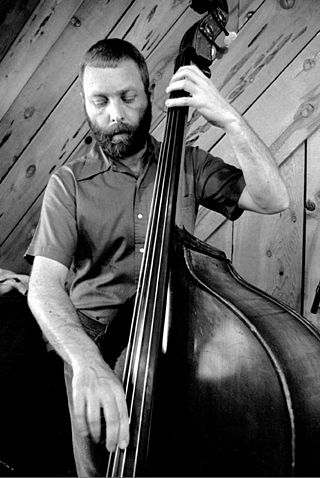
David Holland is an English double bassist, bass guitarist, cellist, composer and bandleader who has been performing and recording for five decades. He has lived in the United States since the early 1970s.

William McKinley "Red" Garland Jr. was an American modern jazz pianist. Known for his work as a bandleader and during the 1950s with Miles Davis, Garland helped popularize the block chord style of playing in jazz piano.

Barry Altschul is a free jazz and hard bop drummer who first came to notice in the late 1960s for performing with pianists Paul Bley and Chick Corea.

Craig S. Harris is an American jazz trombonist, who started working with Sun Ra in 1976. He also has worked with Abdullah Ibrahim, David Murray, Lester Bowie, Cecil Taylor, Sam Rivers, Muhal Richard Abrams, and Charlie Haden. He has recorded since 1983 as leader for India Navigation, Soul Note and JMT. For the latter he recorded with two groups. The Tailgater's Tales was a quintet with clarinetist Don Byron, trumpeter Eddie Allen, Anthony Cox on double bass, and Pheeroan akLaff on drums. His large ensemble Cold Sweat was a tribute to the music of James Brown.

3 Compositions of New Jazz is the debut album by Anthony Braxton released in 1968 on the Delmark label. It features performances by Braxton, violinist Leroy Jenkins and trumpeter Wadada Leo Smith with pianist Muhal Richard Abrams appearing on two tracks.

A jazz trio is a group of three jazz musicians, often a piano trio comprising a pianist, a double bass player and a drummer. Jazz trios are commonly named after their leader, such as the Bill Evans Trio.
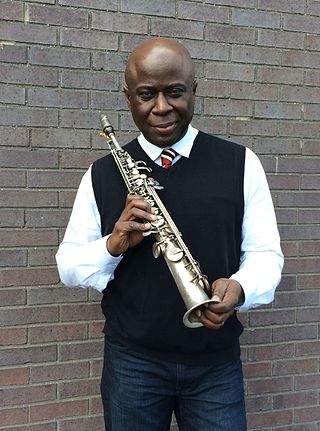
Sam Newsome is an American jazz saxophonist, composer, and educator. His music combines straight-ahead jazz, world music and experimental jazz, which uses extended techniques. Newsome is an associate professor of music and the coordinator of the music program at Long Island University's Brooklyn Campus.

Conference of the Birds is an album by the Dave Holland Quartet, recorded on 30 November 1972 and released on ECM the following year—Holland's debut as bandleader and fourth project for the label. The quartet features alto saxophonist Anthony Braxton, tenor saxophonist Sam Rivers, and percussionist Barry Altschul.
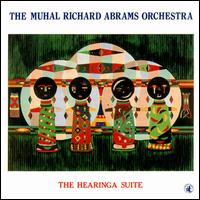
The Hearinga Suite is an album by Muhal Richard Abrams released on the Italian Black Saint label in 1989 and features performances of seven of Abrams compositions by an eighteen-member orchestra. Abrams dedicated the music on the album to Steve McCall and Donald Raphael Garrett.

Back Hand is an album by American jazz pianist Keith Jarrett recorded in two sessions in October 1974 that also gave way to the album Death and the Flower. Originally released in 1975 by Impulse!, it features performances by Jarrett's American Quartet, which included Dewey Redman, Charlie Haden and Paul Motian along with Guilherme Franco added on percussion. For a long time, the album remained a relatively obscure work until it was resuscitated by Impulse! years later.

Blu Blu Blu is an album by Muhal Richard Abrams released on the Italian Black Saint label in 1991 and features performances of eight of Abrams compositions by a big band. Abrams dedicated the title track on the album to Muddy Waters.
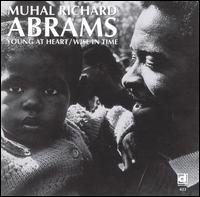
Young at Heart/Wise in Time is an album by pianist/composer Muhal Richard Abrams released by the Delmark label in 1970 that featured an LP side-length solo piano composition and Abrams accompanied by Leo Smith, Henry Threadgill, Lester Lashley and Thurman Barker on the other side.

Streaming is an album by Muhal Richard Abrams, George Lewis, and Roscoe Mitchell recorded in 2005 and released on the Pi Recordings label in 2006.

Spiral is an album by American jazz pianist Andrew Hill, recorded in late 1974 and early 1975 and released on the Freedom label. The album features six of Hill's original compositions and one interpretation of a jazz standard performed by a quartet and quintet. Featured players include saxophonist Lee Konitz and trumpeter Ted Curson. The cover incorrectly identifies the album as being recorded at the Montreux Jazz Festival when it actually contains studio recordings.
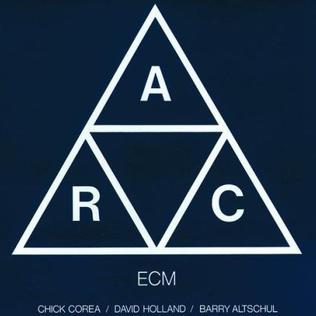
A.R.C. is an album by American jazz pianist Chick Corea, British jazz bassist Dave Holland and American jazz drummer Barry Altschul, recorded over January 11–13, 1971 and released on ECM later that year.

Quintet (Basel) 1977 is an album by the American composer and saxophonist Anthony Braxton, recorded in Switzerland in 1977 but not released on the hatOLOGY label until 2000.
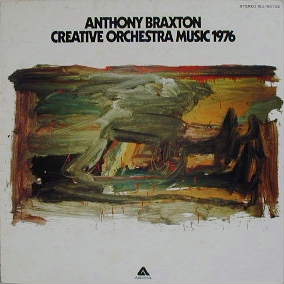
Creative Orchestra Music 1976 is an album by American jazz saxophonist and composer Anthony Braxton recorded in 1976 and released on the Arista label. The album was subsequently included on The Complete Arista Recordings of Anthony Braxton released by Mosaic Records in 2008.
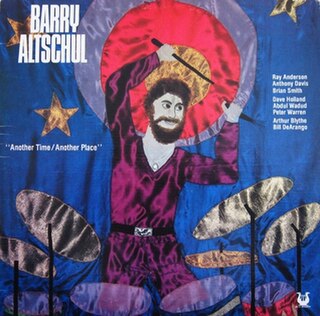
Another Time/Another Place is an album by drummer Barry Altschul. It was recorded on March 13, 1978, and April 14, 1978, at Rosebud Studio in New York City, and was released later that year by Muse Records. On the album, Altschul appears in a variety of instrumental combinations, and is joined by saxophonist Arthur Blythe, trombonist Ray Anderson, pianist Anthony Davis, guitarist Bill DeArango, cellists Abdul Wadud and Peter Warren, and double bassists Dave Holland and Brian Smith.




















